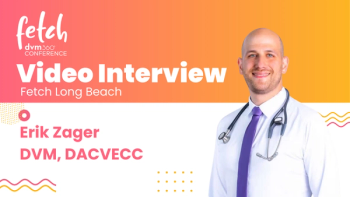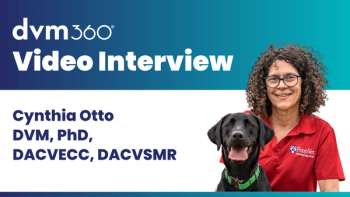
Taking a One Health Approach to Reaching Underserved Families
Michael Blackwell, DVM, MPH, director of the Program for Pet Health Equity at the University of Tennessee College of Social Work, talks about how it is important to take a One Health approach to treating pets and their families.
Michael Blackwell, DVM, MPH, director of the Program for Pet Health Equity at the University of Tennessee College of Social Work, talks about how it is important to take a One Health approach to treating pets and their families.
"We're choosing to use a One Health approach to addressing this very complex societal issue. Now what is One Health? One Health is a global now, an internationally embraced principle that says, if you want to achieve health— healthy outcomes for individuals and communities—that you can't just look at humans in isolation of animals in their lives, or in the environment, and the environment is itself. That these 3—humans, animals, and the environment—are all integrated and interfaced in ways that can either promote health or not. It says that when we look at the work that's been done over the decades for pets, for animals, largely it's by communities that are focused only on the pet, whether they are animal welfare organizations or veterinary social service providers.
That part of our community is not structured to look at the family and the family's reality. Yet, the family is critical, because the pets rely on the family for everything, it's a dependent relationship. So, we are partnering with new professionals and new ways, those being social service and public health. Now these 2 entities, those communities exist to support families, but their programs, their policies, were built without factoring in the presence of non-human members. And why do we put it that way? It's because most people report their pets as being family to them and they behave that way, throughout society. So, our desire is to see these programs that traditionally existed to support families, to also start to make decisions now with the nonhuman member in mind. Likewise, our providers need to become comfortable working within a system whereby the family's needs are being addressed through other means. That's the One Health approach.
And of course the environment, we'd like to think their ecosystem is defined largely by low socioeconomics, and we're largely talking about working people, now the working poor, not slackers as some would say it. So, low socioeconomics is the environment in which we're trying to achieve healthier outcomes for the animals, but in order to do that we got to take in consideration what's going on with the families that they're in."
Newsletter
From exam room tips to practice management insights, get trusted veterinary news delivered straight to your inbox—subscribe to dvm360.






